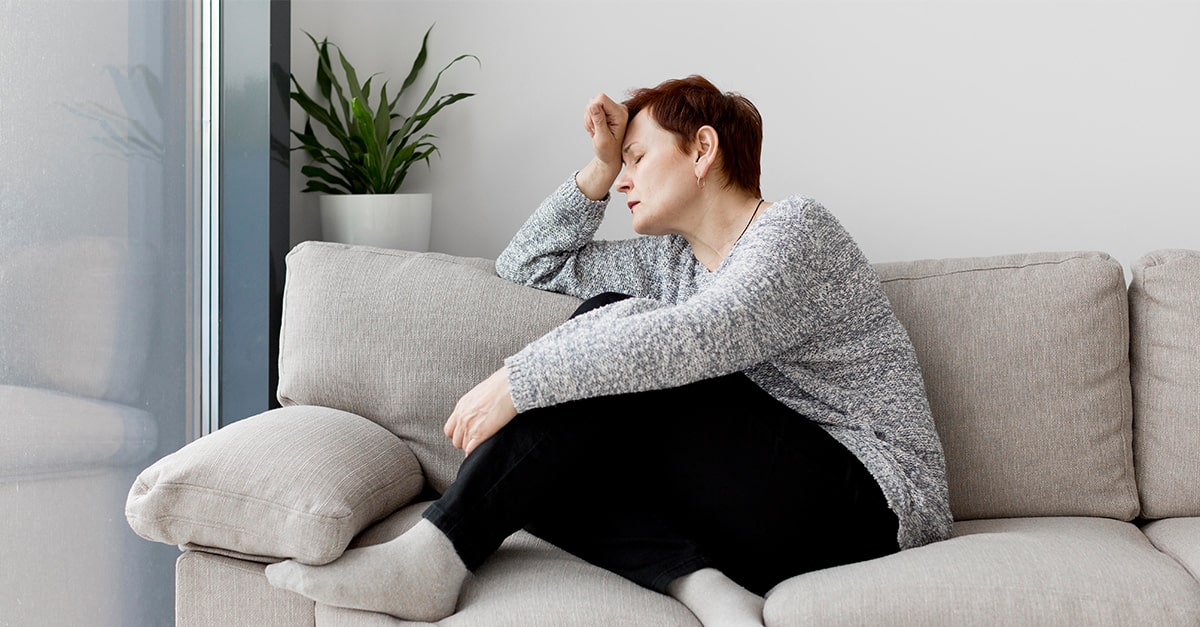Caregiving is a very rewarding experience and if you are a family caregiver to a loved one, kudos to you. But, there is always another side of the coin which you cannot ignore. It comes with its fair share of hindrances too. Striking a balance between your caregiving duties and personal responsibilities is quite challenging. Caregivers sometimes cannot handle this pressure and therefore have to deal with stress, anxiety and depression. It is very important to deal with such matters seriously otherwise you will eventually have to face caregiver burnout.
Let us understand how to deal with anxiety. Whenever you are dealing with a problem, it is best to first define exactly what the problem at hand is. So, what does anxiety in caregivers mean?
Anxiety in general is an emotion accompanied by feelings of stress, tension and negative thoughts. Owing to this emotional simulation, the body often reacts in alleviated manners such as high blood pressure, excessive sweating and troubled breathing. Caregiver anxiety is nothing but the anxiety arising out of one’s caregiving duties.
Here are some of the signs and causes of caregiver anxiety-
- Constant fatigue
- Feeling of helplessness over a situation
- Irregular eating and sleep habits
- Shaking or trembling
- Restlessness and agitation
- Dry mouth
If you have been ignoring the above signs, it is time to take action. Here are the top 6 proven strategies that you can use to reduce caregiver anxiety.
Physical Well-Being Is A Must
Have you ever come across the proverb, “Health is wealth”? It signifies that no amount of money can ever compensate for your health. For a caregiver, staying healthy and fit is extremely important as they have a loved one who is completely dependent on them. If you are fatigued all the time but still consuming caffeine and pushing yourself, stop that habit immediately. Of course you will feel stressed and anxious if you are asked to do five things simultaneously but are not in the physical position to even do one. Take adequate rest at night or nap during the day whichever is more convenient for you. This way you can multitask without any worries.
Never Ignore Your Mental Health
So now your body is well rested; but what about your mind? If you are constantly drowning yourself in pessimistic thoughts, you might want to change that. Playing negative scenarios in your head, overthinking stuff and imagining things that have never happened contribute to anxiety and deteriorate one’s psychological health. It can be overcome simply by learning how to become a more optimistic caregiver but if that does not work for you, do seek out doctors and therapists.
Step Outside & Socialise
Sometimes the cause of your anxiety can simply be the fact that you haven’t left the house in ages. The same surroundings, same food and same routine do get boring sometimes, right? There’s also the feeling of being isolated and disconnected from the world when there’s so much responsibility on you. You might go out with your friends where you can forget your responsibilities for a few hours at least. If you wish to share your caregiving stories with fellow caregivers then you should definitely join a caregiver support group.
Prioritizing Tasks Beforehand
A very common cause of stress and anxiety can be the inability to handle too many things simultaneously. This is where you need to prioritize each task as per its importance and take up one thing at a time. This way you will have a firm command over tricky situations and feel confident rather than feeling restless. It is best to write things down, sort all the tasks for each day and set a reminder on your smartphone using apps such as Google Tasks.
Practice Relaxation Techniques
A very common outcome of induced panic and anxiety is problems related to breathing. Whenever such situations arise, you should practice deep breathing exercises, meditation and yoga. For instance, give square breathing a try wherein you take one finger and draw the side of a square while breathing in for 3 seconds, hold it for 1 second and draw another side of the square. While drawing the third and fourth side, reverse what you did for the first two. It can also be relaxing for some people to keep repeating a word or phrase to themselves such as “Everything is going to be fine.” The basic purpose of all these methods is to calm yourself.
Give Time To Yourself
This does not mean going out with your friends or meeting your relatives. Give time to yourself and yourself only. As the saying goes, “Do more of what makes you happy.” If you do more of what makes you happy, it will have a direct psychological impact on your brain. Your anxiety and stress will automatically reduce. It’s the little things that matter so much such as enjoying a cup of tea, reading a book, stopping to pet a dog. Sadly, these trivial things are ignored the most.
Regardless of how bad it may seem at some point, never ever give up. We are here with caregiver resources and coaching to help you in every way possible. Remember, you are never alone.

